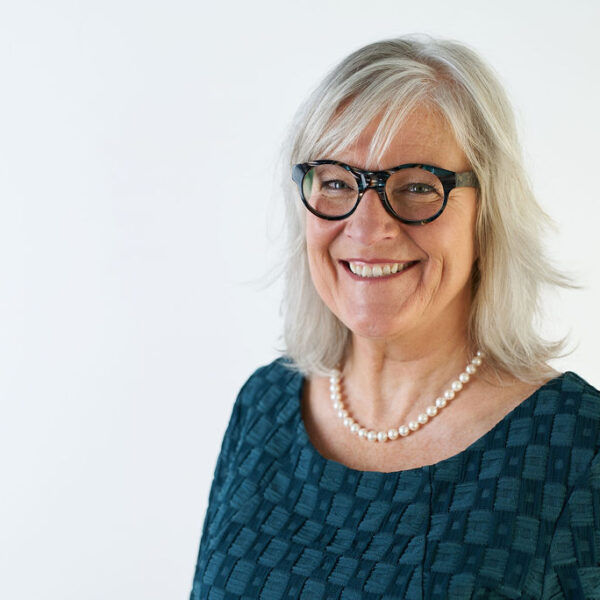I benefited from a public school education. In addition to academics, I learned social skills, respect, understanding and kindness. All of this came with me as I pursued various levels of education, including obtaining an undergraduate degree in science, a graduate degree in business, and a PhD in education. I would say I am a lifelong learner because in addition to formal qualifications, I also undertook a variety of professional designations, such as project management and arbitration and mediation certification. I am old enough to have travelled several career paths, including a professorship, academic administration, small business ownership, public service, and professional consulting. Similar to the variety I pursued in education, my work history reflects diversity. This has allowed me to acquire a special set of skills for strategic planning, complex problem solving, and critical thinking. These were also good skills for the many volunteer commitments I have made over the years, some of which include serving as chair for Economic Development Lethbridge, facilitating for Junior Achievement, serving the University of Lethbridge Senate, leading an Alberta summer games committee, supporting the United Way, and being active in my neighbourhood association. The common theme in all my work and volunteerism history is that it has been with others. I believe the best decisions come using a collaborative approach where there is a willingness to consider alternative ideas.
Statement of beliefs
I believe in public education. Public education should be well funded and well supported because it is the best investment we can make in a society. Many studies show an educated person is healthier, more likely to get a satisfying job, more likely to engaged in their community, more likely to volunteer, and more likely to have increased feelings of safety and trust in their community. Schools are often where young people first learn about the outside world. In addition to sharing knowledge, public education fosters social skills and helps students build understanding, respect, and empathy for others. This creates stronger, more inclusive communities where people can prosper.
Priority areas
Supporting dynamic learning spaces that are welcoming, accessible, and well-equipped.
Strategic resource allocation that drives strong student outcomes.
Equitable policies that cultivate respect, understanding, and belonging.
Views on funding
Alberta ranks last in education spending, having the lowest per-student spending. This is unacceptable. I do not subscribe to the concept that you can do more with less. With less, you do less. Alberta risks graduating continual cohorts of students who are ill prepared and ill equipped to succeed.
School boards are tasked with planning for the division, setting long term priorities, and promoting public education as a cornerstone of a well functioning and successful democratic society. Funding decisions fall within the layered approach an effective school board should adopt. First, the direction is set through the strategic vision and priorities, then policies are created for support and guidance, including the fiscal oversight and allocation of resources. Trustees will approve the budget and ensure that resources are allocated to the priorities. When there are not enough resources the school board need to advocate at the provincial level for more funds.
How learning conditions can be improved
The complexity and diversity of student needs have increased, and classroom supports have decreased. According to a publication from the ATA, which I have every reason to believe is accurate, 86% of teachers confirm this. Logically this should lead to more resources, but more than half of teachers report there has been a decrease in support for students with special needs. Learning conditions can be improved by first asking teachers wheat they need. There are going to be multiple requests and the school board needs to be creative and limber in how it responds to meet these needs. The school board should also be seeking expert advice from individuals and groups who specialize in inclusion education, and then following through on recommendations for actions. Teaching is a hands-on profession and more hands on deck are needed.
How trustees and school boards can best support teachers
Trustees and school boards can best support teachers by recognizing the important work that is happening in classrooms and schools. Trustees should ensure they are creating policies and allocating funds towards helping teachers create student-centred and learner-focused environments. This requires that they listen and collaborate. Trustees need to have a presence in order to build relationships, and should attend to school events when invited. Trustees also need to act on behalf of teachers when they are advocating and lobbying. Trustees need to balance and coordinate the needs of students and parents when supporting teachers, while recognizing the teacher is the professional educator who has the best interests of the student at the front of their decision making. Trustees have no control over teachers but they can create the framework that will help teachers thrive.
Views on the new K-6 curriculum
I am not yet completely fluent in this topic, and if I have something wrong, please correct me. The school board has no authority to develop curriculum, and it does seem that several of those with the authority and expertise on the curriculum are not feeling satisfied with the outcome. One prominent group has stated their contributions were largely ignored, and others have criticized the curriculum for various shortcomings. In addition to the curriculum itself, I have read that it does not come with adequate resources, which is very problematic as it adds unnecessary pressure and expense to teachers who are already burdened with the impacts of under-funding. In speaking with teachers, I also understand that there is a new requirement for standardized testing, which as described to me has no pedagogical purpose.

